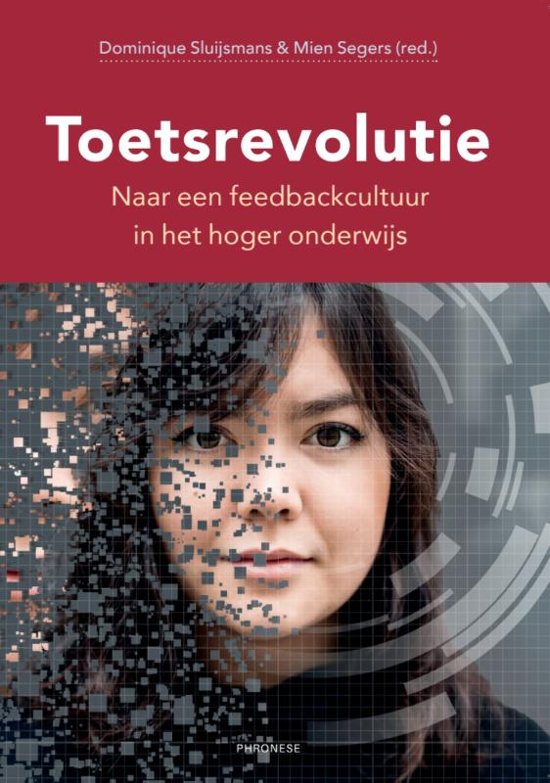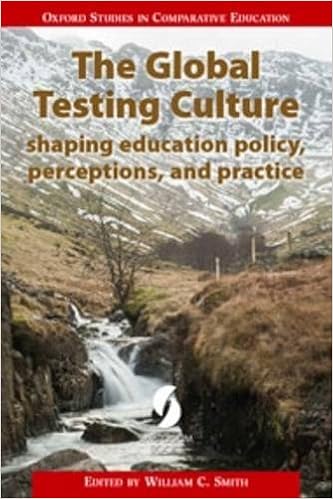

Het onderwijs heeft als opdracht samen met iedere student op zoek te gaan naar zijn of haar unieke talenten in de domeinen van kennen, kunnen en voelen, en mogelijkheden te creëren om in optimale omstandigheden verder te kunnen werken aan deze talenten. Een klimaat waarin reflectie en feedback hand in hand gaan, is hierbij cruciaal. Deze visie op onderwijs vraagt om een herkadering van het waarom, wat en hoe van de manier waarop wij studenten toetsen en beoordelen. In deze bundel wordt in artikelen en interviews stilgestaan bij inspirerende, vooruitstrevende, en professionele toets- en feedbackpraktijken in het hoger onderwijs.
Shows how to ensure that students have higher-order thinking skills by providing specific guidelines for designing targeted questions and tasks that align with standards and assess students' ability to think at higher levels. Aided by dozens of examples across grade levels and subject areas, readers will learn how to• Take a student perspective and view assessment questions and tasks as 'problems to solve'.• Design multiple-choice questions that require higher-order thinking.• Understand the difference between 'open' and 'closed' questions and how to use open questions effectively.• Vary and control the features of performance assessment tasks, including cognitive level and difficulty, to target different thinking skills.• Manage the assessment of higher-order thinking within the larger context of teaching and learning. Includes an 'idea bank' for teachers to jump-start their own thinking to create assessments.
Deals with the development of an assessment and teaching system of 21st century skills. Readers are guided through a detailed description of the methods used in this process. The major elements of this volume are the identification and description of two 21st century skills that are amenable to teaching and learning: collaborative problem solving, and learning in digital networks. Features of the skills that need to be mirrored in their assessment are identified so that they can be reflected in assessment tasks. The tasks are formulated so that reporting of student performance can guide implementation in the classroom for use in teaching and learning. How simple tasks can act as platforms for development of 21st century skills is demonstrated, with the concurrent technical infrastructure required for its support. How countries with different languages and cultures participated and contributed to the development process is described. The psychometric qualities of the online tasks developed are reported, in the context of the robustness of the automated scoring processes. Finally, technical and educational issues to be resolved in global projects of this nature are outlined.

Underlying the global testing culture is a set of values identified which include: education as a human right, academic intelligence, faith in science, decentralization, and neoliberalism. Each of these values highlights different aspects of the dialogue in support of high-stakes standardized testing. The wide approval of these values and their ability to legitimate various aspects of high-stakes testing reinforces the taken-for-granted notion that such tests are effective and appropriate education practices. However, a large body of literature emphasizes the negative unintended consequences – teaching to the test, reshaping the testing pool, the inequitable distribution of school resources and teachers’ attention, and reconstructing the role of the student, teacher, and parent – commonly found when standardized, census-based tests are combined with high-stakes outcomes for educators or students. This book problematizes this culture by providing critical perspectives that challenge the assumptions of the culture and describe how the culture manifests in national contexts. The volume makes it clear that testing, per se, is not the problem. Instead it is how tests are administered, used or misused, and linked to accountability that provide the global testing culture with its powerful ability to shape schools and society and lead to its unintended, undesirable consequences.
This book addresses a broad range of aspects of assessment, feedback, learning and teaching, and helps develop many facets of professional practice. Built around a central agenda of improving the quality of student learning, it is outcomes-focused. Includes strengthened emphasis on assessment and feedback, and designing large-group teaching for the digital age, when students can get easy access to a vast range of learning resource materials online. Coverage includes: how students really learn; designing assessment and feedback to enhance learning; lectures in the digital age; making small-group teaching work; resource-based learning in the digital age; looking after yourself; challenges and reflections.